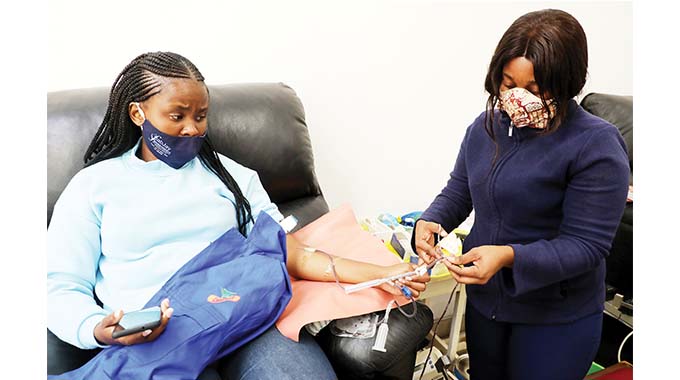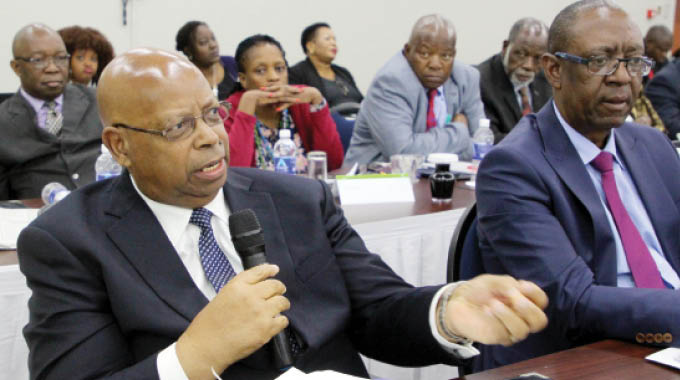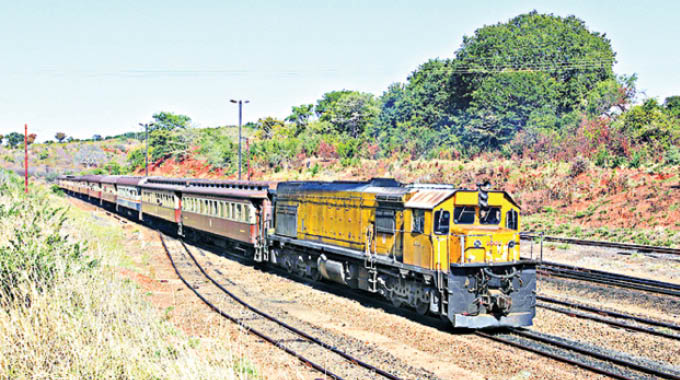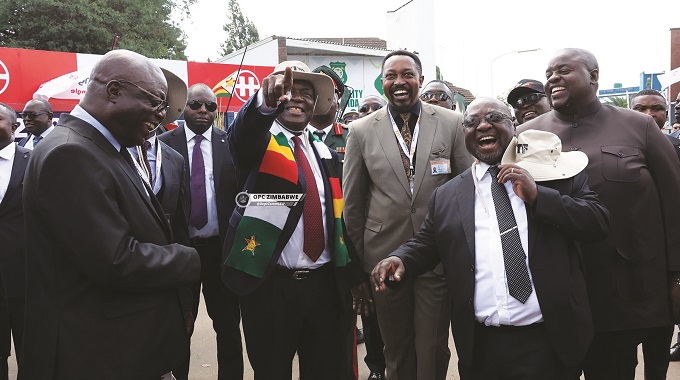Unconfirmed myths deter women blood donors

Thandeka Moyo-Ndlovu, Health Reporter
AMONG potential blood donors in Zimbabwe, there lies a group of women reluctant to donate because of unfounded myths and misconceptions.
This has led to a disturbing trend whereby females constitute about 40 percent of blood donors while their male counterparts account for the remaining 60 percent.
Chief among the myths is that when one donates, they will not have enough blood left in their system for menstruation.
Experts say an average adult has approximately 10 pints of blood, and after donating, the body makes new blood to replenish what is lost within a few hours.
Zimbabwe joined the whole world in commemorating World Blood Donor Day on Sunday with calls for more donors despite challenges caused by the Covid-19 lockdown.
Speaking before donating for the 40th time yesterday during the national blood donor drive, Mr Benson Ndlovu (31) said he was worried his female counterparts were reluctant to donate blood.
He has been donating blood since 2010 and has become one of the youth ambassadors for the National Blood Services of Zimbabwe in Bulawayo. “I am worried because most women and girls are reluctant to donate and many always say it’s because of myths they hear about donating blood. Ever since I started donating, women make up about two fifths of total donors,” said Mr Ndlovu.
“Women’s galas have been held to try and promote blood donation and still few are willing to attend these events. I would like to urge them to come forward because donating blood is also a great motivator to keep oneself free from diseases.”
Mr Ndlovu said he plans to donate blood until he reaches 65 and does four donations a year.
“I am full time employee but during my off days I engage friends and neighbours to help save lives by donating blood, it’s the least we can do,” he said.
Mr Nigel Nyathi an Upper Six pupil from Rosecamp who attends a private college in the city centre who was also donating, said giving his blood was the least he could do to help people in his community.
He said he wanted to be remembered for doing something noble during his life and he was convinced donating blood was one of them.
“It does not require much work and it is a way I can serve my community since I am not in a position to give something else. Donating blood also comes with the advantage of knowing your HIV status,” said Mr Nyathi who was donating for the second time.
“I know this blood will save a life and one day it might benefit me or a member of my family in the event of an emergency.”
Ms Bublebenkosi Mavolwane from Montrose suburb says she had been donating since her high school days at Minda High School.
“I realised that I could give back to the community by donating blood since I am healthy and I do not lose anything by doing so. This is now a lifestyle and I encourage other women to come in their numbers and help save lives,” said Miss Mavolwane.
NBSZ southern region marketing manager Mr Sifundo Ngwenya said the lockdown had slowed down progress in terms of collecting blood to service the 65 health institutions in the region.
“We have running programme where we are using community halls to collect blood in all 29 wards in the city. We get 70 percent of our blood from schools but due to Covid-19 lockdown we have had to be creative to ensure that the blood bank maintains stocks,” he said.
Mr Ngwenya urged members of the public to come to their offices to donate blood and said those facing movement challenges can contact them to obtain exemption letters. — @thamamoe










Comments